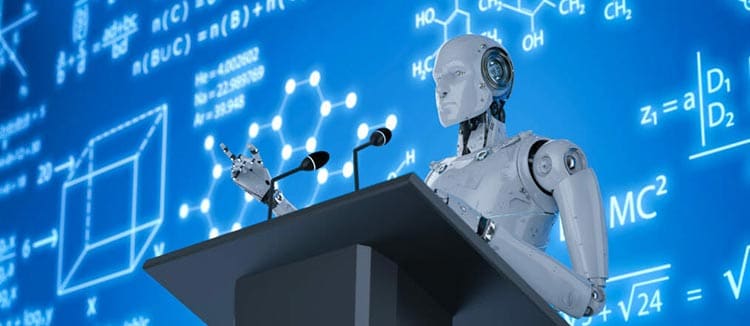What Will AI Afford Us? A Glimpse Into Our Future What Effect Will AI Have On Our Futures? Artificial Intelligence technology is progressing at an amazing rate, but what impact will AI have on the future for better or worse?
The modern world relies increasingly on technology, and AI is becoming an ever-larger part of it. From facial recognition functionality on smartphones to Amazon’s Alexa and Google Home always listening in on your conversations, ready to help at a vocal signal, AI is likely to be a strong focus in the future. Many industries are already incorporating AI into the way they do business, so how is it benefiting us today and how will it continue to benefit us tomorrow?

The Gambling Industry
One of the industries which is already adopting artificial intelligence into its operations is the gambling sector. AI can make more accurate predictions which are based on probability and statistical analysis, and this means that more realistic games can be played. AI-enhanced online casinos can offer an even better player experience. Artificial intelligence is capable of learning from the player’s interactions which games they prefer and then customize their homepage with choices which are more appealing to them. For example, a player who prefers live dealer games will be presented first with a list of live gaming options that would suit their playing style. AI also has a major role to play in spotting fraud and cheating, recognizing behavioral patterns and raising red flags when something suspicious is detected.

Smarter Homes
The IoT or Internet of Things has already appeared in our homes, and is set to expand even further over the years to come. Homes are now full of amazing user experiences, with microphones, cameras and sensors packed into various devices that can then be commanded to perform a variety of functions.
Google Assistant and other similar functions are embedded within smart home products, mobile devices and wearables, while connected cameras deploy facial recognition and computer vision. Homeowners can now turn on their lights remotely, activate their heating from their smartphone or command music to play through voice recognition technology. It’s just the beginning of an exciting era of home user experiences.
Better Customer Service
Chatbots are already becoming commonplace in the customer service sector. A convenient way of helping consumers gain access to essential services and support is by using automated software. Commonly asked questions can be addressed without any need for human intervention. This is just the beginning of a revolution in the customer service industry. Soon, it’s likely that AI will conduct call analysis and deliver product suggestions proactively. This will allow human agents to put their efforts into handling escalations and complex questions for better efficiency.
The Real Estate Industry
Already, quantitative bots analyze, sell and buy stocks, with algorithmic trading representing around 80% of today’s stock market in the United States. It seems likely that very soon, AI will identify properties which real estate investors should buy and maybe even buy them remotely. Already, Zillow, a property listing site, utilizes AI to factor photographs into predictions of property values.
It’s clear that other areas of the real estate sector will soon also see the impact, with mortgage lenders likely to rely on artificial intelligence when it comes to risk calculations, developers using algorithms to choose sites based on local zoning regulations and realtors using algorithms based on buyers’ personal preferences to choose the right properties to showcase.
The Education System
In just a few years, AI is likely to be instrumental in the education system. Artificial intelligence will be capable of grading student assignments more accurately and rapidly than any teacher, and learning plans can be generated that are customized to each student’s needs based on their performance in questionnaires and quizzes.
The Automobile Industry
Anyone living in Silicon Valley will already be aware of autonomous cars which are driven by human developers, packed with sensors, data input tools and cameras to feed machine learning and AI platforms. While these don’t yet operate fully on American roads, Tesla vehicles already offer a form of self-driving functionality, with a new feature having recently been released which enables owners to simply summon a vehicle to pick them up. It’s very likely that there will be rapid progression within the automobile industry, with fully self-driving vehicles arriving on the nation’s roads in the near future.















